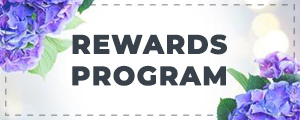| Pulmonaria 'Twinkle Toes' | USDA Zone: 3-9 |
Twinkle Toes Lungwort features delicate clusters of sky blue bell-shaped flowers at the ends of the stems in late spring, which emerge from distinctive rose flower buds. Its attractive pointy leaves remain dark green in colour with distinctive silver spots throughout the season.
Twinkle Toes Lungwort is recommended for the following landscape applications;
- Mass Planting
- Rock/Alpine Gardens
- General Garden Use
- Groundcover
- Container Planting
Bloomtime: Late Spring
Attracts Hummingbirds
Common Name: Lungwort, Bethlehem Sage.
|
Key Feature
|
Light Needs | Landscape Uses |
 |
 |
|
|
|
|
| More About Twinkle Toes Pulmonaria |
| Height: 12-14 inches |
Spread: 16-18 inches |
Flower Colour: Blue & Purple Shades |
|
Twinkle Toes Lungwort does best in partial shade to shade. It prefers to grow in average to moist conditions, and shouldn't be allowed to dry out. It is not particular as to soil type or pH. It is somewhat tolerant of urban pollution. Despite their unfortunate common name, Lungworts are among the most dependable and showy spring-blooming perennials, and many types have attractive foliage throughout the season. This selection features light pink buds that open to clusters of bright blue bells, the green leaves are heavily spotted in silver. Plants should be cut back hard immediately after blooming, to rejuvenate the leaves, which will then remain attractive all season. Twinkle Toes Lungwort is a fine choice for the garden, but it is also a good selection for planting in outdoor pots and containers. It is often used as a 'filler' in the 'spiller-thriller-filler' container combination, providing a mass of flowers and foliage against which the thriller plants stand out. Note that when growing plants in outdoor containers and baskets, they may require more frequent waterings than they would in the yard or garden. Note that when grown in a container, it may not perform exactly as indicated on the tag - this is to be expected. Also note that when growing plants in outdoor containers and baskets, they may require more frequent waterings than they would in the yard or garden. Be aware that in our climate, most plants cannot be expected to survive the winter if left in containers outdoors, and this plant is no exception. NOTE: Some flowers and plants may be harmful or poisonous to people or pets if touched or ingested. If you require more information before placing an order, please let us know in advance. |







